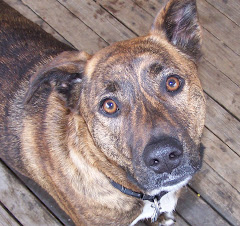Turn the water off when you don't really need it. We don't always realize how much water we waste. Small habits like, turning off the water while your brushing your teeth, shaving a couple of minutes off that morning shower, or filling a pan with water to scrub veggies instead of holding them under running water, can save a lot! We let hundreds of gallons of unnecessary water just run down the drain, down the street, or in many cases, into the ground. Irrigation with hoses can be a huge waste when left unmonitored. I have seen sprinklers left unattended for hours or even days. The grass only needs so much water!
Safe drinking water. Many people merely take it for granted that the water that flows from their tap is safe to drink. If you live in town, chances are that you can have that peace of mind. Water quality is monitored closely by municipalities to insure safe drinking water conditions.
If your home is on a community well, water quality is the responsibility of the homeowners or water association. A Certified Water Operator must follow procedures, while maintaining certifications and training to ensure that the water is properly maintained, and indeed safe to drink. The state has strict requirements for community water systems and businesses that provide drinking water to the public.
Private wells on the other hand (wells that serve one private residence), do not have as many requirements set in place by the state. Owners and users of private wells have the responsibility to educate themselves on the subject of safe drinking water.
Ideally, the water that flows from the ground into your well is pure and safe to drink. Unfortunately, as we all know, there are many more contaminants in this world now, which can affect our air and drinking water supply than ever before. Industry, farming, livestock, chemical use, septic tanks, roads and bodies of surface water are all things that can all affect your drinking water.
Did you know that the area, which is within 100’ radius around your wellhead, should be kept free from contaminants? Lawn chemicals, gasoline, automobiles, insect sprays, farm animals, decorative ponds or surface water, just to name a few, can all be sources of contamination to your drinking water supply, and should be kept out of the 100' "Sanitary Control Area" of your well.
More detailed information is available on the Washington State Department of Health, Office of Drinking Water Website.













